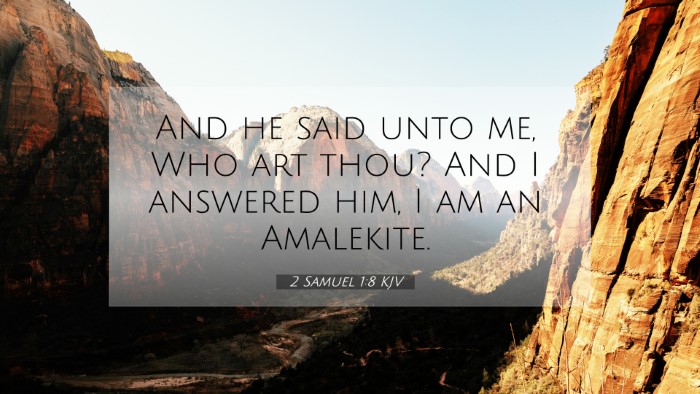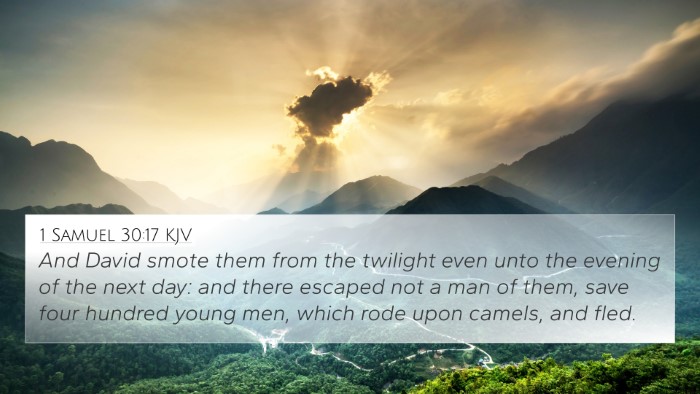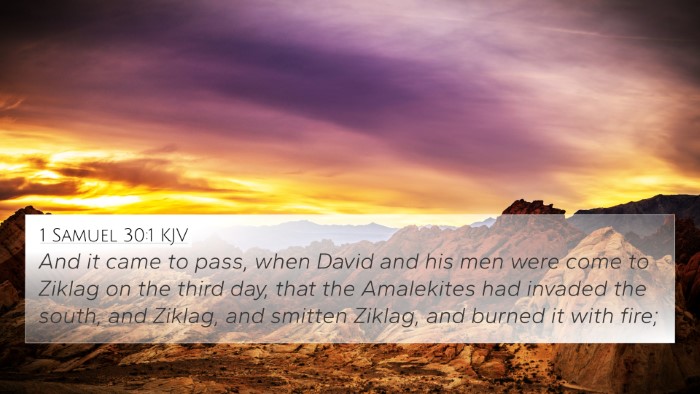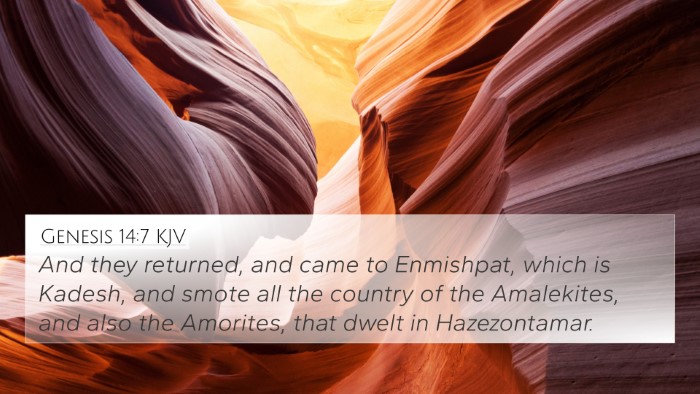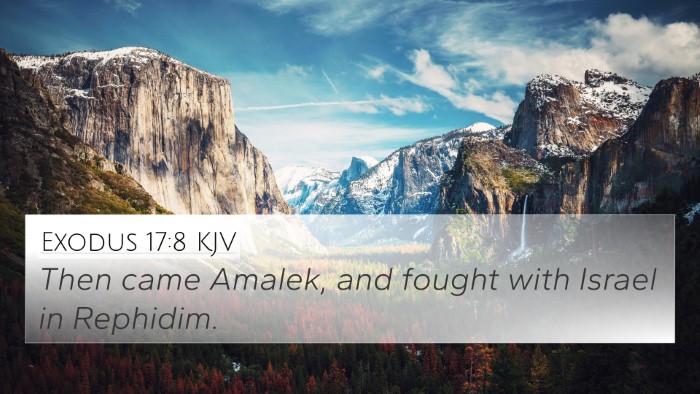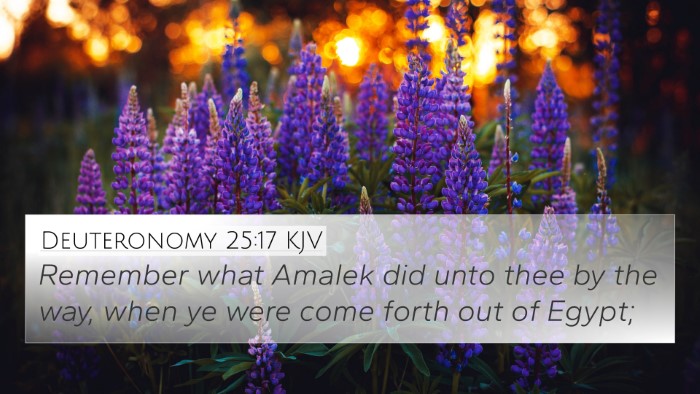Understanding 2 Samuel 1:8
2 Samuel 1:8 finds David in a poignant moment of grief and reflection. The verse states:
"And he said to me, 'Who are you?' So I answered him, 'I am an Amalekite.'" (2 Samuel 1:8 NKJV)
Contextual Overview
This verse occurs after the death of Saul, the first king of Israel. David is approached by an Amalekite who claims to have killed Saul, believing this would earn him favor with David. This encounter highlights several themes:
- Deception: The Amalekite's tale is dubious; rather than bringing good news, he attempts to curry favor through falsehood.
- Leadership: David's response to the Amalekite reflects his character and understanding of rightful kingship.
- Divine Sovereignty: The death of Saul sets the stage for David's ascension, emphasizing God's control over the Israelite monarchy.
Insights from Commentaries
Several public domain commentaries provide valuable insights into this verse.
- Matthew Henry:
Henry notes the sorrow and treachery present in this encounter. He emphasizes that the Amalekite may have thought he would gain David's favor by claiming to deliver Saul from his suffering, showing the moral bankruptcy of his character.
- Albert Barnes:
Barnes highlights the irony of the situation: the Amalekite, a historical enemy of Israel, finds himself in a position to address David. His dishonesty and opportunism serve as a cautionary tale about motives and integrity.
- Adam Clarke:
Clarke reflects on David's character as he processes the news of Saul's death. Rather than rejoice, David mourns, showing his respect for Saul as God's anointed. Clarke indicates that this moment is critical in demonstrating David's heart and his understanding of divine appointment.
Bible Verse Cross-References
Several other Bible verses relate to and enhance the understanding of 2 Samuel 1:8. Here are key cross-references:
- 1 Samuel 15:33: Highlights Saul's relationship with the Amalekites and God's judgement against them.
- 2 Samuel 4:10: Further emphasizes the theme of retribution related to Saul's death.
- 1 Chronicles 10:13-14: Offers parallel insight into Saul's demise and God's disfavor.
- 2 Samuel 1:11-12: David's lamentation for Saul and Jonathan deepens the context of grief.
- 2 Samuel 2:4: David's anointing as king reinforces God's sovereign choice.
- 1 Samuel 26:16: Reflects on David's respect for Saul, emphasizing moral integrity.
- Psalm 142:4: Indicates David's feelings of isolation and despair, relevant to his leadership struggles.
Comparative Bible Verse Analysis
Analyzing the connections between this verse and others provides deeper insights into the biblical narrative. The interplay between Saul's failures and David's character can be traced through these connections:
- 1 Samuel 24:6: David's refusal to harm Saul shows his commitment to God's plan even when it was difficult.
- Matthew 5:44: Jesus' teaching about loving enemies resonates with David's perspective in this moment.
- 2 Timothy 2:10: Paul's acknowledgment of enduring hardship for the sake of the gospel mirrors David's struggles.
Thematic Bible Verse Connections
The themes of leadership, mourning, and ethical conduct appear throughout scripture:
- Mourning in Ecclesiastes 3:4: "A time to weep, and a time to laugh; a time to mourn, and a time to dance." This reflects David's mourning for Saul.
- Integrity in Proverbs 10:9: "He who walks with integrity walks securely." This aligns with David's moral choices.
- Divine Appointment in Romans 13:1: "Let every soul be subject to the governing authorities." It mirrors the theme of God's hand in leadership.
Scriptural Cross-Referencing Tools
To explore these connections fully, consider employing various tools for Bible cross-referencing, such as:
- Bible Concordance: A comprehensive index of words and phrases in the Bible, aiding in cross-referencing.
- Bible Reference Resources: Books and software dedicated to linking Bible scriptures effectively.
- Cross-Reference Bible Study: Methods that enhance understanding by exploring related verses.
Conclusion
2 Samuel 1:8 serves as a reflection of the complexities of leadership and the human heart. The insights drawn from various commentaries, along with the cross-references provided, illustrate the nuanced interplay between faith, moral integrity, and the consequences of our actions. Through cross-referencing and thematic analysis, readers can better understand the scriptural dynamics at play, enriching their knowledge and personal growth in faith.


